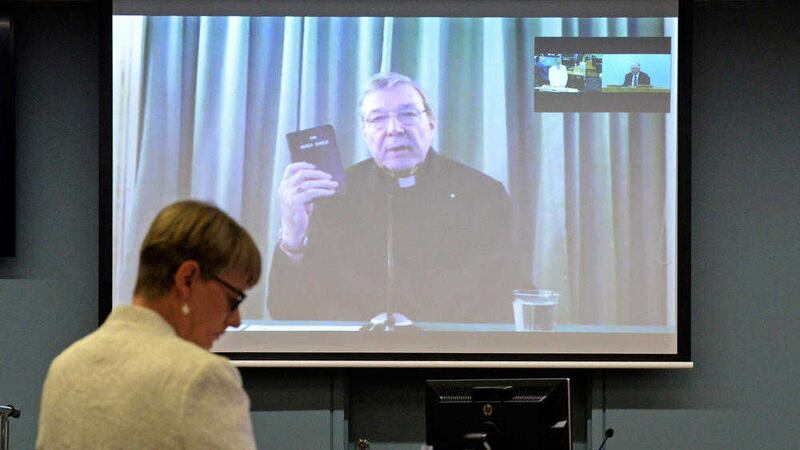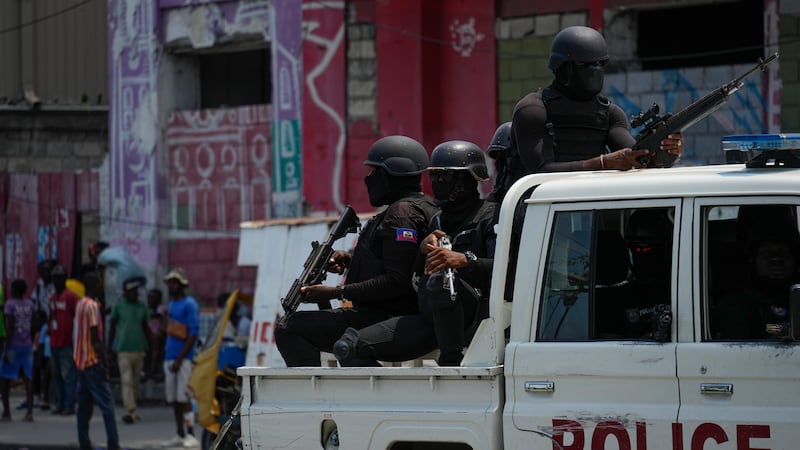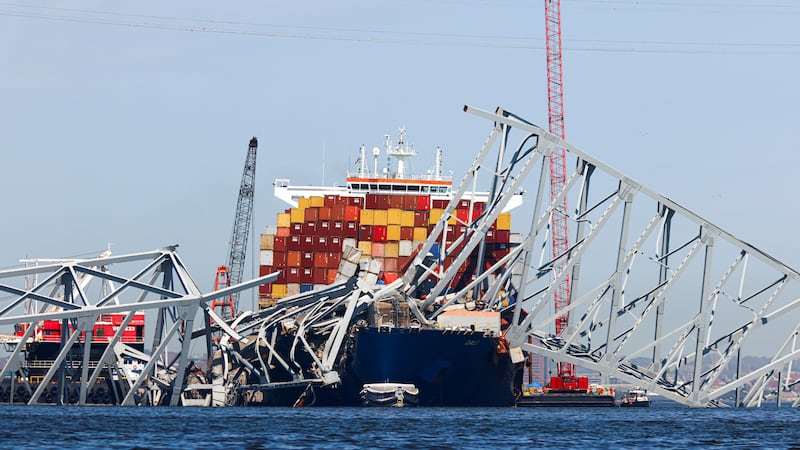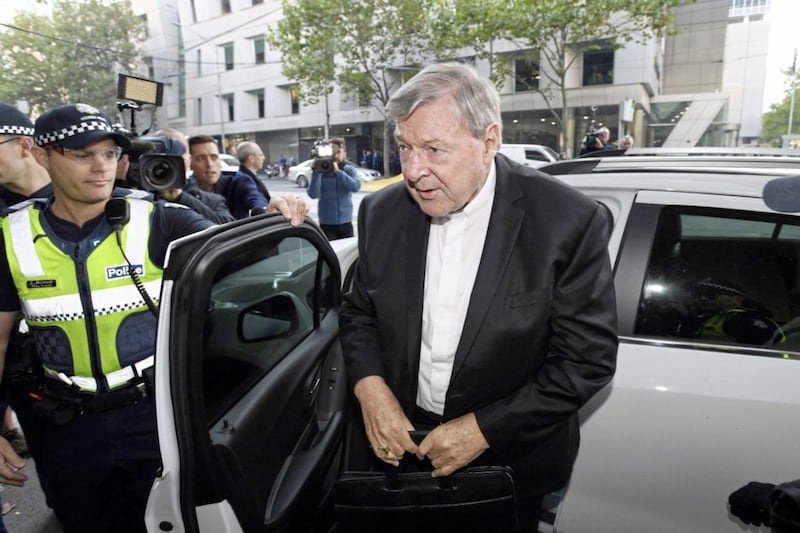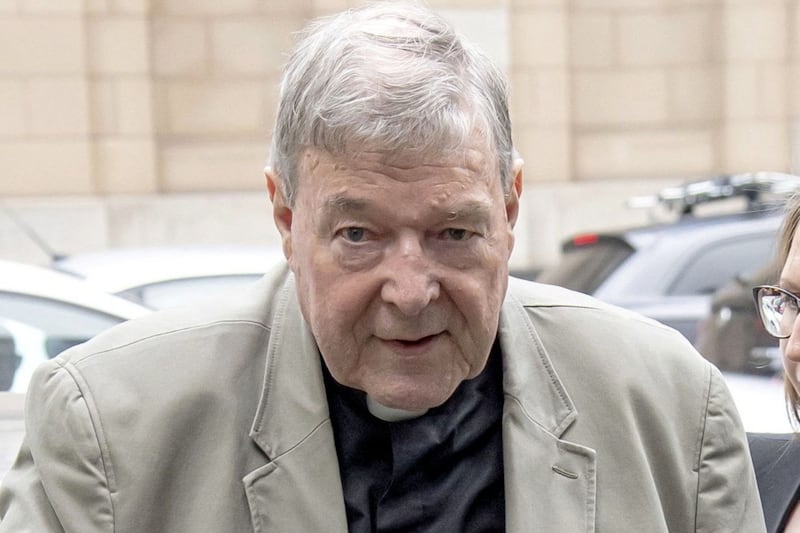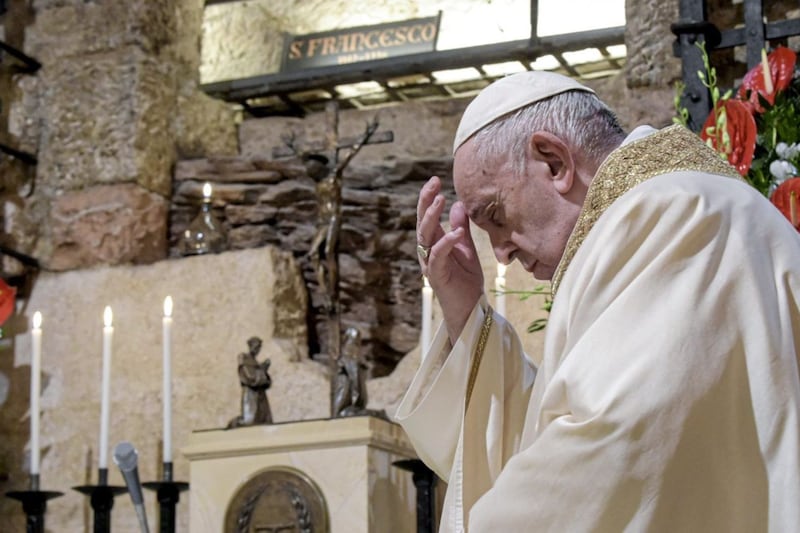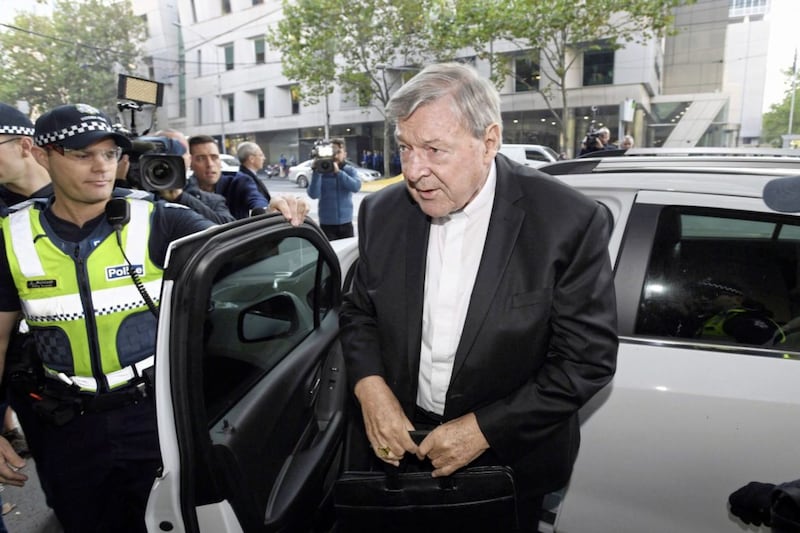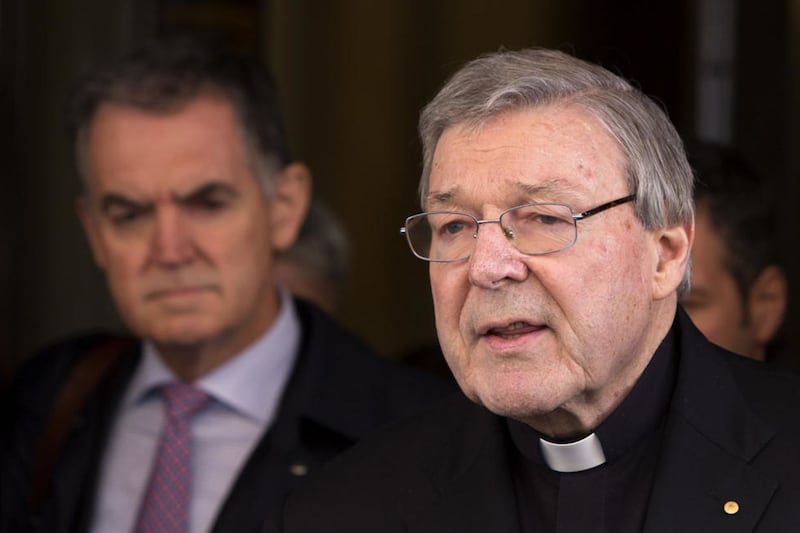One of Pope Francis's top advisers has said the Catholic Church made "enormous mistakes" in allowing thousands of children to be raped and molested by priests over centuries.
Australian Cardinal George Pell's comments came as he gave evidence at an extraordinary public hearing of an Australian investigative commission just a few streets from the Vatican.
Cardinal Pell spoke via video link from a Rome hotel to the royal commission sitting in Sydney.
In the front row of the conference room were two dozen Australian abuse survivors and their companions who had travelled across the globe to be on hand for Cardinal Pell's evidence, a significant show of accountability in the Church's long-running abuse saga.
The lead counsel assisting the commission, Gail Furness, questioned Cardinal Pell about current Vatican efforts to address the scandal as well as his own past in Australia, including how he dealt with abuse allegations as a priest, educator and adviser to former Ballarat bishop Ronald Mulkearns.
Cardinal Pell said: "I'm not here to defend the indefensible. The Church has made enormous mistakes and is working to remedy those."
He said the Church had "mucked things up and let people down" and for too long had dismissed credible abuse allegations "in absolutely scandalous circumstances".
He described Bishop Mulkearns' handling of Australia's most notorious paedophile priest, Gerald Ridsdale, as a "catastrophe for the Church" and suggested that he would be a candidate for a proposed Vatican tribunal to hear the cases of negligent bishops.
But the cardinal also acknowledged that he too had made mistakes in often believing the priests over victims who alleged abuse.
"I must say in those days, if a priest denied such activity, I was very strongly inclined to accept the denial," he said.
It is the third time that the Australian cardinal, Pope Francis' top financial adviser, has given evidence about the sex abuse scandal, but the present round has generated intense international attention because it is taking place a short walk from the Vatican.
In the conference room were media from Australia, the US, Italy, and Britain, as well as Rome-based priests and members of the Catholic community.
The commission, which is more than halfway through a £217 million government-authorised probe into how all Australian institutions dealt with abuse, agreed to let Cardinal Pell speak from Rome because he was too ill to travel home.
Two weeks ago, it also agreed to let victims be on hand to recreate the type of public hearing that Cardinal Pell would have faced in Australia.
David Ridsdale, who was abused for four years by his uncle, Gerald Ridsdale, said victims in recent days had conducted more than 100 media interviews before Cardinal Pell's evidence even began, and was grateful that the horror of what transpired in Ballarat was finally being known outside Australia. Gerald Ridsdale is in prison after being convicted of multiple abuse charges.
The deeply Catholic town in Australia's Victoria state has been devastated by disclosures about the huge number of abuse victims, scores of whom have killed themselves in a cluster of abuse-related suicides unseen anywhere else.
More than 40 people including abuse victims gathered at the Ballarat town hall to watch Cardinal Pell's evidence on three TV screens.
David Ridsdale said Ballarat's survivors merely wanted Cardinal Pell to "stand up and take responsibility on behalf of the Church" for what transpired in his own home town.
"We're here to seek the truth. We're here to heal our city," Mr Ridsdale said.
"We have the highest suicide rate among men in Australia. We have some of the worst drinking and violence problems. And it all stems from that abuse."
The commission's current hearings relate to Ballarat and how the Melbourne archdiocese responded to allegations of abuse, including when Cardinal Pell served as an auxiliary bishop.
The cardinal, who was born and raised in Ballarat, was ordained a priest there in 1966 and was a consultant to Bishop Mulkearns, who moved Gerald Ridsdale between parishes for years.
During the opening address at a royal commission hearing in Ballarat last week, the lawyer assisting the commissioner said that as a consultant, Cardinal Pell would have been responsible for giving advice to the bishop on the appointments of priests to parishes.
Cardinal Pell has long denied allegations that he was involved in transferring Gerald Ridsdale - with whom he once lived at the Ballarat presbytery - and said he never tried to buy the silence of his nephew, as he alleges.
Cardinal Pell said he had no suspicions that Gerald Ridsdale was a deviant - when he was finally brought to justice, Pell accompanied him to court.
In a statement, Cardinal Pell repeated his support for the royal commission's work, vowed to meet individually with victims who had travelled to Rome and said he hoped the coming days "will eventually lead to healing for everyone".
He said he had tied a yellow ribbon on the fence in the Our Lady of Lourdes Grotto in the Vatican Gardens in a show of solidarity with the Loud Fence movement launched in Ballarat to support survivors of abuse.
